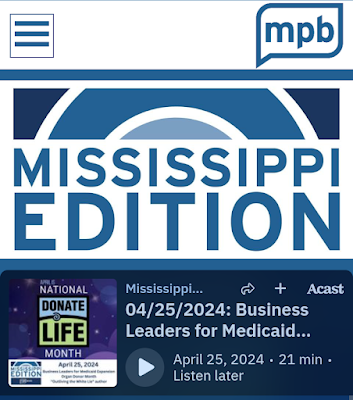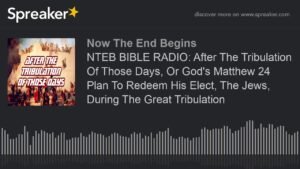Beware of Knowing More Than You’re Willing to Live
 The importance of being committed to both learning and living the Bible.
The importance of being committed to both learning and living the Bible.
The apostle James faced a unique challenge leading the church in Jerusalem. Perhaps nowhere has there ever been a people who knew more about the Bible than they did. Teachers of the law and Pharisees often had significant portions of the Old Testament memorized. Their entire lives and society were shaped by it. But James understood what is still true today: you can have a head filled with biblical knowledge, but still live a life that ignores it. You can be a hearer and not a doer.
“But don’t just listen to God’s word. You must do what it says. Otherwise, you are only fooling yourselves. For if you listen to the word and don’t obey, it is like glancing at your face in a mirror. You see yourself, walk away, and forget what you look like. But if you look carefully into the perfect law that sets you free, and if you do what it says and don’t forget what you heard, then God will bless you for doing it” (James 1:22-25, NLT).
LACK DOING AND HEARING?
We live in an age when people know increasingly less about the Scriptures that sit on their shelves or are on the apps on their phones. According to the American Bible Society, in 2021 roughly half of Americans said they read a Bible at least occasionally. In 2022, that number fell to 39%. That means around 26 million Americans have given up on Bible reading in the past year alone.
When people happen across Scripture, many find it increasingly difficult to apply. A lack of biblical literacy makes the words opaque and a culture hostile to Christian doctrine, leaves it feeling antiquated. If there was a temptation 2,000 years ago to read the Word and not live it, certainly that temptation is even greater when we find ourselves struggling even to glance at it.
James described this tendency as a person looking into a mirror and then forgetting what had been seen. He understood that the Word of God is like a mirror which reveals our true appearance. It is not just a book of arbitrary laws or ancient customs. The Bible is living and active, a sword which cuts into the human soul. The Bible exposes us. When read carefully, it reveals our brokenness and our need. But having seen that need, the temptation is to walk away, ignore it, and go back to our regular life, preferring daydreams and distractions more than the uncomfortable truth of personal brokenness.
To be fair, some do take great interest in the Word of God. Some are fascinated by the history, the theology, the obscure facts of dates and times and numbers. Some know just about everything there is to know about the Bible, but as James wisely understood, our goal is not just increased Bible reading or knowledge. Our goal is never just Bible facts.
Jennifer Long, a writer for the Harvard School of Business, helps explain how knowing what to do is never the same as doing it. She writes, “Two of my teenage children are competitive swimmers, which means I have been volunteering at swim meets for over a decade. My volunteer job is to monitor races and ensure that swimmers follow legal stroke technique. I have received hours and hours of training —lecture, video, discussion, observation — on what constitutes proper, legal technique. I can tell you exactly what the butterfly should look like: the kick and the pull, and how the arms have to be synchronous, and how the touch and turn need to work. I know all about how to swim butterfly. But I can’t swim the butterfly at all.”
So too, many of us may have all the right ideas, the correct theology, even insightful and prophetic critiques of culture. But if our lives are not shaped by what we know, we have nothing. As James says, we are only fooling ourselves. If we are going to call ourselves people of the Book, than we have to deal with what we find in it, even if it is an unflattering reflection of ourselves.
THE WORD SETS FREE
The command of James to be doers of the Word and not only hearers, might sound like a guilt trip, a pastor’s push to get back to those daily reading plans. Yet the apostle offers something far more meaningful than a scolding; James understood that the Bible is freedom.
Switching his language from a mirror, James described the Bible as the perfect law, but added that it also sets us free. The Bible is not designed to test us and break our independence, forcing us into a tyrannical obedience. It is meant to rescue us and free us. How can a law lead to freedom?
Though they are probably as neglected as our Bibles, every vehicle comes with an owner’s manual. Such booklets offer pages and pages of strong rules for maintainance, instructing on proper oil changes, tire pressure, fuel type, and so forth. That may seem unnecessary to an owner who has paid lots of money for the vehicle. What right does anyone else have to tell us how to use it? Maybe the manufacturer is merely on a power trip. So, we refuse to follow any of the advice; we never even get the manual out of the glove box to read it. And eventually the vehicle breaks down on the side of the road. So much for freedom.
That owner’s manual isn’t written to restrict the user; it’s designed to get the person to provide the greatest freedom, to keep that car running the longest, and going the farthest.
Likewise, James recognizes that the Scriptures are there ultimately to set us free, to expose our need and then reveal how God has met it.
Reading the Bible isn’t easy. It requires work and discipline, but in it you will find that you are not alone. Jesus has come to reveal God to us and to offer us freedom for all eternity. We read the Bible to learn, to understand ourselves, to understand His guidance for living, but also to encounter Christ, to discover what has already been done for us.
We look into the mirror, recognize our need, and find in that mirror an image of one who has done what we could not. We see in that mirror our own brokenness and His perfection, and we find a new motivation for obedience, for doing: hope and gratitude.
*Sunday, Dec. 11, is Bible Sunday in the Assemblies of God.
“But don’t just listen to God’s word. You must do what it says. Otherwise, you are only fooling yourselves. For if you listen to the word and don’t obey, it is like glancing at your face in a mirror. You see yourself, walk away, and forget what you look like. But if you look carefully into the perfect law that sets you free, and if you do what it says and don’t forget what you heard, then God will bless you for doing it” (James 1:22-25, NLT).
LACK DOING AND HEARING?
We live in an age when people know increasingly less about the Scriptures that sit on their shelves or are on the apps on their phones. According to the American Bible Society, in 2021 roughly half of Americans said they read a Bible at least occasionally. In 2022, that number fell to 39%. That means around 26 million Americans have given up on Bible reading in the past year alone.
When people happen across Scripture, many find it increasingly difficult to apply. A lack of biblical literacy makes the words opaque and a culture hostile to Christian doctrine, leaves it feeling antiquated. If there was a temptation 2,000 years ago to read the Word and not live it, certainly that temptation is even greater when we find ourselves struggling even to glance at it.
James described this tendency as a person looking into a mirror and then forgetting what had been seen. He understood that the Word of God is like a mirror which reveals our true appearance. It is not just a book of arbitrary laws or ancient customs. The Bible is living and active, a sword which cuts into the human soul. The Bible exposes us. When read carefully, it reveals our brokenness and our need. But having seen that need, the temptation is to walk away, ignore it, and go back to our regular life, preferring daydreams and distractions more than the uncomfortable truth of personal brokenness.
To be fair, some do take great interest in the Word of God. Some are fascinated by the history, the theology, the obscure facts of dates and times and numbers. Some know just about everything there is to know about the Bible, but as James wisely understood, our goal is not just increased Bible reading or knowledge. Our goal is never just Bible facts.
Jennifer Long, a writer for the Harvard School of Business, helps explain how knowing what to do is never the same as doing it. She writes, “Two of my teenage children are competitive swimmers, which means I have been volunteering at swim meets for over a decade. My volunteer job is to monitor races and ensure that swimmers follow legal stroke technique. I have received hours and hours of training —lecture, video, discussion, observation — on what constitutes proper, legal technique. I can tell you exactly what the butterfly should look like: the kick and the pull, and how the arms have to be synchronous, and how the touch and turn need to work. I know all about how to swim butterfly. But I can’t swim the butterfly at all.”
So too, many of us may have all the right ideas, the correct theology, even insightful and prophetic critiques of culture. But if our lives are not shaped by what we know, we have nothing. As James says, we are only fooling ourselves. If we are going to call ourselves people of the Book, than we have to deal with what we find in it, even if it is an unflattering reflection of ourselves.
THE WORD SETS FREE
The command of James to be doers of the Word and not only hearers, might sound like a guilt trip, a pastor’s push to get back to those daily reading plans. Yet the apostle offers something far more meaningful than a scolding; James understood that the Bible is freedom.
Switching his language from a mirror, James described the Bible as the perfect law, but added that it also sets us free. The Bible is not designed to test us and break our independence, forcing us into a tyrannical obedience. It is meant to rescue us and free us. How can a law lead to freedom?
Though they are probably as neglected as our Bibles, every vehicle comes with an owner’s manual. Such booklets offer pages and pages of strong rules for maintainance, instructing on proper oil changes, tire pressure, fuel type, and so forth. That may seem unnecessary to an owner who has paid lots of money for the vehicle. What right does anyone else have to tell us how to use it? Maybe the manufacturer is merely on a power trip. So, we refuse to follow any of the advice; we never even get the manual out of the glove box to read it. And eventually the vehicle breaks down on the side of the road. So much for freedom.
That owner’s manual isn’t written to restrict the user; it’s designed to get the person to provide the greatest freedom, to keep that car running the longest, and going the farthest.
Likewise, James recognizes that the Scriptures are there ultimately to set us free, to expose our need and then reveal how God has met it.
Reading the Bible isn’t easy. It requires work and discipline, but in it you will find that you are not alone. Jesus has come to reveal God to us and to offer us freedom for all eternity. We read the Bible to learn, to understand ourselves, to understand His guidance for living, but also to encounter Christ, to discover what has already been done for us.
We look into the mirror, recognize our need, and find in that mirror an image of one who has done what we could not. We see in that mirror our own brokenness and His perfection, and we find a new motivation for obedience, for doing: hope and gratitude.
*Sunday, Dec. 11, is Bible Sunday in the Assemblies of God.


